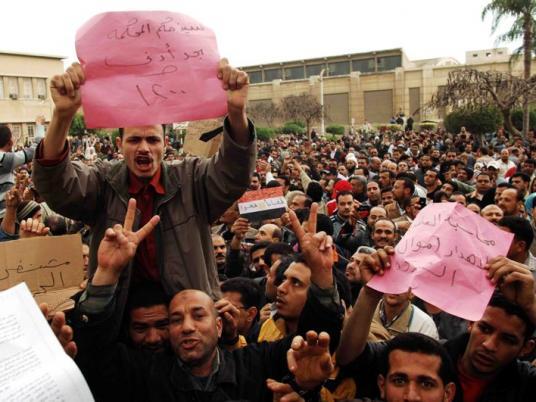CAIRO: The work of ACE Moharram Bakhoum, an engineering consultancy company, can be prominently seen around Egypt. You may not realize it, but you know their work well: whether you’re shopping in CityStars, driving on the Ring Road or looking forward to the opening of the Grand Egyptian Museum.
The company is also responsible for Tahrir Square’s underground parking as well as the American University in Cairo’s new campus, the Cairo International Stadium, both the Ring Road and the International Coastal Road, and the three Metro lines.
On an industrial level, it is working on the Greater Cairo Wastewater Project as well as the LE 1.2 billion Sphinx float glass factory, a jointly-funded project by Citadel Capital and Dubai Investment Holdings.
It also works regionally, on Dubai’s Light Rail for example and has several projects in Qatar.
Established in 1950 as a partnership between Ahmed Moharram and Michel Bakhoum, ACE now operates in 37 countries with seven international branch offices working on both private and publicly financed projects.
When it started, the firm comprised of a six-member team: the two partners along with an architect, a structural designer, a draftsman and a secretary.
Daily News Egypt recently met with David George, general manager of ACE’s project management unit, to talk about the firm’s current projects.
Daily News Egypt: What projects is ACE Moharram Bakhoum currently focusing on in Egypt?
David George: The main projects being run in Egypt are CityStars Cairo, CityStars Sharm El-Sheikh, Royal City Sixth of October, BNP Paribas headquarters in New Cairo, Credit Agricole New Cairo and the Sphinx float glass factory in Sadat City.
In addition to these, ACE also have a number of International projects in Qatar, the Emirates and Indonesia.
What is the firm’s strategy in Egypt and how easy is it to implement?
ACE-MB’s strategy in Egypt is steady growth with quality companies and a mutual objective to enhance both companies’ reputations, a win/win situation.
Egypt presents challenges but the key issue is to be prepared and to plan far enough in advance to achieve your objectives.
ACE-MB recognized that in order to achieve their goals they need a blend of local and expatriate staff in order to achieve the best results. To maintain a business in Egypt you need a good name in the market, to give you the opportunity to carry out the work. In addition to which you need to be focused on your clients needs.
Business in Egypt is very personal and you need to establish and maintain a high degree of trust with your client.
What is your assessment of Egypt’s property market?
Firstly I would say that there is still strong growth in the residential market. I live in Sheikh Zayed and it has an enormous amount of developments currently under construction including Royal City which is being managed by ACE.
Whole new areas have been developed while I have been in Egypt including New Cairo, Rehab and Sixth of October.
Egypt is a great location to do business from. It has good sea, land and air access to the Middle East, Africa, Europe and Asia. Utility costs are low and the labor force is well educated and plentiful.
With the markets that are available around Egypt it is in a very good position to expand, so I can see growth in both sectors at the moment.
Investors will invest where they can find the best return on their investment. The art of an investor is to predict the trend and have the product coming onto the market when demand is increasing and to have someone like ACE on board to assist them in achieving their goals.
Within Egypt you also have a number of government schemes for building low-cost housing. Within Sadat City, where ACE are building the float glass factory, I have seen government schemes to encourage workers to buy their own properties.
What do you think the future looks like for the regional construction sector?
Based upon the new projects that ACE- MB started recently, the construction sector is doing quite well. Construction material prices are very competitive at the moment and it would appear that a number of clients are taking advantage of this situation.
When you talk of other players in the region I presume that you are talking about the Gulf. The Gulf has seen unprecedented growth over the last 10 years but the rate of growth was not sustainable and they are currently suffering from this.
Egypt has maintained a steady rate of growth which is more sustainable and less prone to the bubble effect.
Did Dubai’s real estate bubble offer any lessons?
Throughout history all bubbles have burst. You have to view the growth of a company or a country based upon what it buys and sells. If a factory has a similar turnover this year to what it was last year then it is unlikely to be worth three or four times as much on the stock exchange than it was the year before.
The trouble is too many people see the stock market as a get-rich-quick chance rather than take a longer term view of where the company is and where it is going. With Dubai people were able to make huge profits from investments that were completely unsustainable in the real world.
Steady growth is much better for an economy rather than boom and bust. I see Egypt as having great possibilities to grow. The issue is, will it grow steadily or rush into a boom-and-bust cycle. I hope that the steady growth option is the one that is followed.

